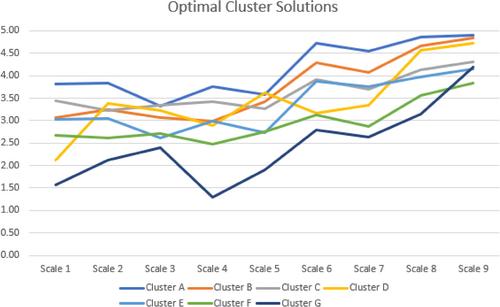Health literacy profiles of pregnant women and mothers in Tasmania: A cluster analysis
Abstract
Issue Addressed
Health literacy development can help to reduce the growing noncommunicable disease burden globally. However, less is known about the health literacy needs of pregnant women and mothers necessary to guide health literacy development in this priority population group. To enhance the understanding of the health literacy needs of pregnant women and mothers, this study aimed to develop data-informed health literacy profiles of pregnant women and mothers with children (0–8 years) in Tasmania, as well as data-informed vignettes describing the health literacy needs of women in the different health literacy profiles.
Methods
An online cross-sectional survey was undertaken. The survey included demographic questions and the health literacy questionnaire (HLQ). The data were analysed using a cluster analysis to identify subgroups with varying health literacy needs. The clusters, in conjunction with demographic characteristics, were used to generate data-informed vignettes representing various health literacy profiles.
Results
The cluster analysis generated seven health literacy profiles and five vignettes representing diverse health literacy needs of pregnant women and mothers in Tasmania. Each vignette tells a data-informed story of women in Tasmania experiencing diverse health literacy strengths and challenges influencing their access and use of health information and health services. This allowed deeper exploration of the health literacy needs of the subgroups within the target population.
Conclusion
A better understanding of the health literacy needs of pregnant women and mothers can provide policymakers and health care providers with the key insights needed to guide the planning and development of fit-for-purpose solutions. This understanding can also guide the tailoring of existing health and community services, to create a health literacy-responsive environment that is more likely to meet the diverse health needs of pregnant women and mothers.
So What
We must shift away from a ‘one size fits all’ approach and promote the development of a health literacy-responsive environment to improve health and equity outcomes for pregnant women and mothers in Tasmania.


 求助内容:
求助内容: 应助结果提醒方式:
应助结果提醒方式:


